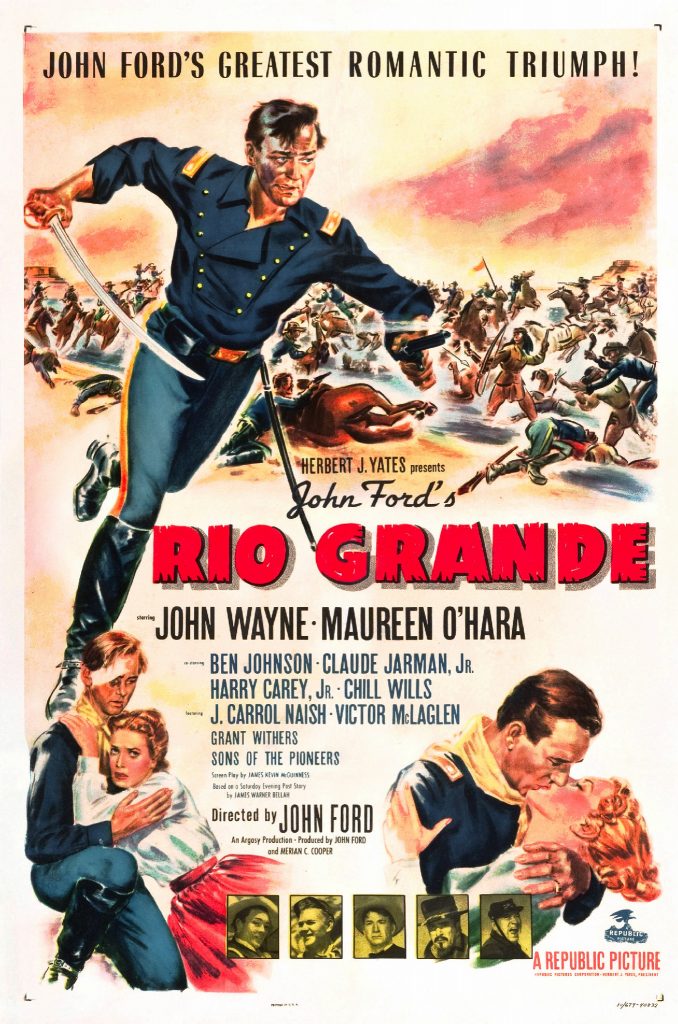Each Monday, I continue to share Western movie reviews as I go through the process of making my own 12 Westerns in 12 Months during 2020. I am watching these films not from an audience perspective but as a filmmaker, as a student of the genre.
Week Fifty One: Rio Grande

Years ago, I fell in love with the movies made by John Ford, plunging into his filmography and watching everything I could get my hands on at the time. That’s when I first saw Rio Grande, after seeing many of his other Westerns over the course of a couple weeks. At that point, Rio Grande felt like “minor Ford”. When dealing with a master filmmaker, every work is worth looking at and then looking at again. Recently, with the prospect of making my first cavalry picture, I decided it was time to give this film a new assessment and see I might find more to it than I’d remembered.
From conversations online and in person, I know this film has its strong admirers. Some might count it at the top of their Ford/Western lists. Unfortunately, on this second viewing, I still feel that Rio Grande is not one of the director’s best but it’s still pretty damn good!
The first half is most effective as we meet the new recruits and witness their training. The narrative is most interesting when following them, not Wayne’s character. He plays better in this film as support, a figure in the background. Ben Johnson and Harry Carey Jr. give the movie its life while young Claude Jarman Jr. provides the heart. The trio’s adventures in the process of becoming soldiers are fun and fascinating, enough to fill a whole movie.
Sadly, the movie loses focus on this and moves on to other things. Maureen O’Hara (who I generally like very much) comes into the picture and it starts to deflate. It’s not the fault of the actress but of Ford who spends too much time with Wayne/O’Hara and serenades. I love songs in old movies; I even miss them in modern cinema. But hell, how many singing scenes do you need? This gets as tiresome as Victor McLaglen’s comic gags, something Ford overused in more than one of his movies.
Once the troops are mounted and this turns into a war picture, I lost a lot of interest. We’re once again facing a faceless enemy that really feels like no threat. The conflict at the beginning of the picture was ourselves, the danger was the struggle to be our best selves. In that sense, the movie feels like John Ford playing with the themes of Howard Hawks and his preoccupation with professionalism. Years ago when I saw Rio Grande, the film did not hold the weight of its counterparts like Fort Apache and She Wore a Yellow Ribbon. Today, it still feels that way.


